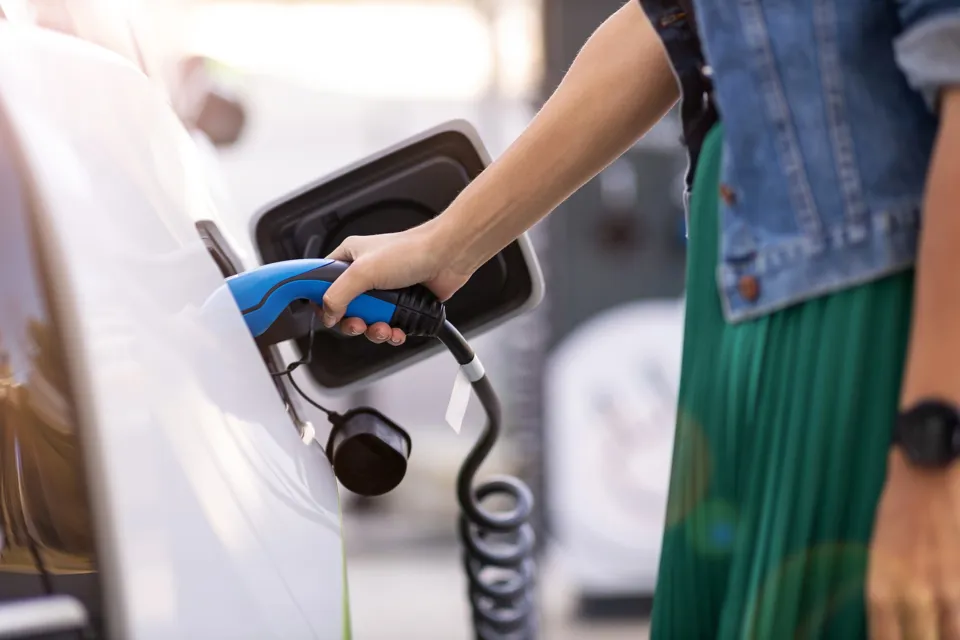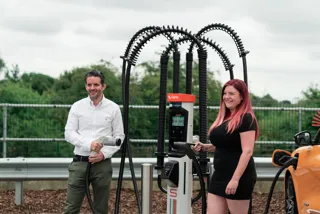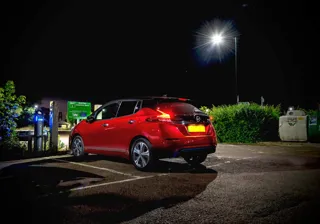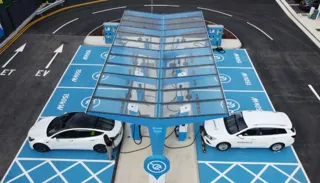Electric vehicle (EV) drivers without private parking face having to pay up to an additional £227 per year to charge their car, new data from the FairCharge campaign suggests.
The additional ‘pavement tax’ is the result of EV drivers paying four times the rate of VAT (20%) to charge publicly than charging at home (5%), says FairCharge.
Zap-Map utilisation data from August 2022, shared with FairCharge, shows that the average cost of using a rapid or ultra-rapid charger rose from 44p/kWh in March to 56p/kWh in August.
The average cost of charging at a fast or slow charger also rose, from 30p/kWh to 39p/kWh, respectively.
This means that the average cost of EV charging for those with private parking is now £863 per year, compared to £1,418 for those without.
FairCharge warns that the ‘pavement tax’ on drivers without private parking has risen to £148 per year on average, up from £115 in March. Furthermore, they warn that the gap could be as high as £227, given that EV drivers without driveways do not have access to low-cost overnight tariffs, such as the 7.5p/kWh tariff offered by Octopus Go.
Quentin Willson, founder of FairCharge, said: “The growing discrepancy between the cost of charging an electric vehicle at home and on public networks is incredibly concerning for the 38% of UK households without driveways.
“This outdated VAT legislation is in need of immediate reform or else the Treasury risks hindering growth in EV adoption, investment in charging infrastructure and ultimately, the wider transition to cleaner air and energy security.
“The EV transition should not come at a cost to those without private parking. If the Chancellor isn’t concerned about the sheer unfairness of the policy, then surely he can at least see the economic case that it is undermining investment in the public charging network, which would otherwise be helping boost growth.
“I urge the Government to take the relatively simple, low-cost, step and immediately axe the Pavement Tax.”
Almost four-in-10 households (38%) say they can’t charge an electric vehicle at home – because they only have on-street parking or a parking space where they are unable to use a charger, or because they rent their home and a charge point isn’t installed.
Campaigners argue that the ‘pavement tax’ could threaten to undermine consent for the transition to electric vehicles if seen as unfair and highlight that it would cost a comparatively small £37.3 million annually to overturn.
In September, 23 public charge point operators supported this view, signing an open letter calling for an immediate equalisation of the VAT regime between public and private EV charging ahead of the Chancellor’s mini-Budget.
Existing EV drivers also agree – RAC research shows that just three-in-10 (28%) believe the cost of public charging is fair while three-quarters (77%) think the rate of VAT at public charge points should be reduced to 5%, bringing it in line with domestic charging.
Melanie Shufflebotham, co-founder and chief operating officer at Zap-Map, said: “With drivers up and down the country increasingly making the switch to electric, the ‘Pavement Tax’ issue is only becoming more pressing.
“Charge point operators across the UK are investing huge amounts of time and effort into creating a robust charging network that works for everyone, while EV drivers are only trying to do the right thing and reduce their carbon emissions – those without access to a home charger should not be penalised for doing so.
“While it’s great to see Zap-Map data put to good use in the FairCharge campaign, it’s imperative that the Government sees sense and acts now to reduce the rate of VAT on public charging.”
Simon Williams, RAC EV spokesperson, added: “The Government needs to be doing all it can to encourage as many drivers as possible to go electric the next time they come to change vehicles which is why we believe it’s essential to bring the VAT rate at public chargers in line with the 5% that’s levied on electricity at home.
“This would be an easy change that would cost the Treasury relatively little yet send a very strong message to drivers, especially those who don’t have driveways or rely on charging up away from home, that switching to an EV is the right choice.”
> Interested in comparing electric vehicle data? Check out our EV tool.
> Interested in ensuring the efficient use of EVs. Check out our dedicated editorial sections: Insight & policy | EV news | Charging & infrastructure | Costs & incentives | Benefit-in-kind | EV case studies | EV road tests






















Login to comment
Comments
No comments have been made yet.